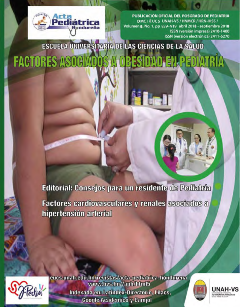Pediatric Autoimmune Neuropsychiatric Disorders Associated With Streptococcal Infections: Presentation of a case
DOI:
https://doi.org/10.5377/pediatrica.v9i1.8587Keywords:
Pediatric Autoimmune Neuropsychiatric Disorders (PANDAS), Group A hemolytic streptococcus (SBHGA), obsessivecompulsive disorders (OCD), Sydenham's choreaAbstract
PANDAS (Pediatric Autoimmune Neuropsychiatric Disorders Associated With Streptococcus) was created to describe a theoretical subgroup of cases of obsessive-compulsive disorders (OCD) and / or tics in which the onset or exacerbation of symptoms is triggered by group A hemolytic streptococcus infection (GABHS). Although there is still no incidence data, it is estimated that the disorder affects approximately 1% of children or children under 12 years of age, because they are less likely to have antibodies against streptococci and are probably underdiagnosed. The existence of this disorder has generated considerable clinical and scientific advances, as well as controversy. Pathophysiologically, PANDAS is proposed to be a poststreptococcal autoimmune disorder similar to Sydenham's chorea, hypothesizing more specifically that tics and obsessivecompulsive symptoms are the result of activation of the adaptive immune system by group A streptococcus. We present the case of a 6-year-old male patient, with a three-week history of involuntary movements in the head and upper limbs, as well as behavioral changes, whose history of importance was a respiratory and skin infection several weeks before the onset of the symptom.
Downloads
977

